News
Prize money awarded to winners of the 2022 FIFA World Cup
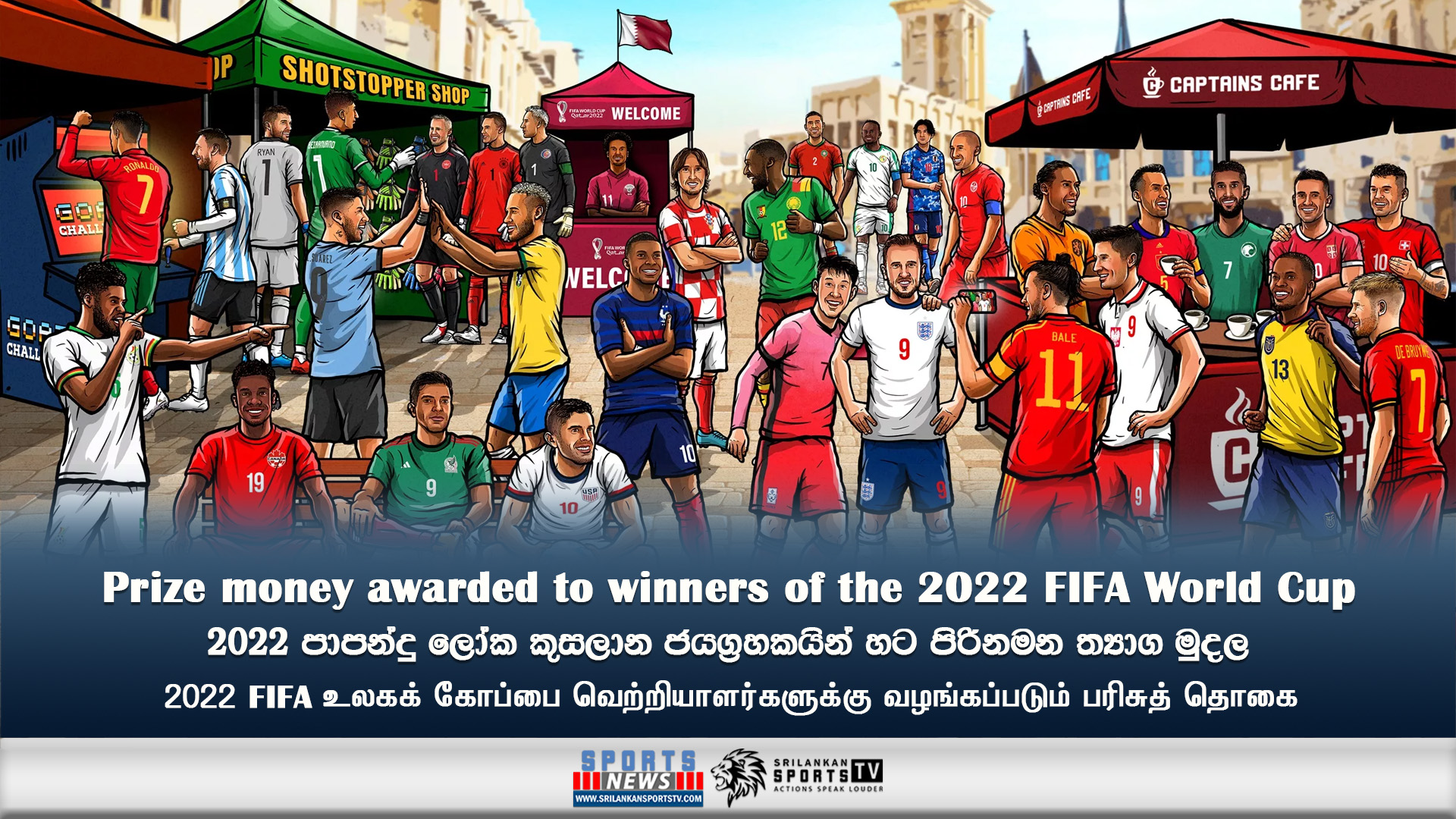
The 22nd edition will be hosted by Qatar and will start on November 20, with the opening match between Qatar and Ecuador on Sunday 20th.
The FIFA World Cup was first held in 1930, when FIFA, the world governing body of football, implemented the idea and decided to hold an international men’s football tournament under the tenure of FIFA President Jules Rimet. The inaugural edition held in 1930 was contested as a final by only thirteen teams invited by the organizers. Since then, the World Cup has undergone expansions and changes, with the current 32 teams participating in a two-year qualification process before the final World Cup, with over 200 teams from around the world participating in these qualifying tournaments. This year the World Cup will be held for the 22nd time and the World Cup will be hosted by Qatar.
FIFA has announced the total prize money fund for the 2022 World Cup with a massive increase of 29%, taking the total to $1 billion. Of that, $440 million will be distributed among the 32 teams depending on how the World Cup ends. The remaining $660 million will be distributed to the least developed federations.
The distribution among the 32 groups is as follows
Participation Fee (for all 32 qualified teams) $2.5 million (each)
Group Stage (16 teams which get eliminated) $8 million (each)
Round of 16 (8 eliminated teams) $12 million (each)
Quarterfinals (4 eliminated teams) $16 million (each)
Fourth place $22 million
Third Place $26 million
Runners-up $32 million
Champions $45 million
2022 පාපන්දු ලෝක කුසලාන ජයග්රහකයින් හට පිරිනමන ත්යාග මුදල
22 වරට කටාර් රාජ්යයේ සත්කාරකත්වය යටතේ නොවැම්බර් 20 වෙනි දින ආරම්භ කිරීමට නියමිත අතර, 20 වැනි ඉරිදා ආරම්භක තරගය ලෙස කරාර් රාජ්යය හා ඉක්වදෝරය තරග වැදීමට නියමිතය.
FIFA ලෝක කුසලානය ප්රථම වරට පැවැත්වුණේ 1930 දී, ලෝක පාපන්දු පාලක මණ්ඩලය වන FIFA විසින් මෙම අදහස ක්රියාත්මක කර FIFA සභාපති Jules Rimet ගේ ධුර කාලය යටතේ ජාත්යන්තර පිරිමි පාපන්දු තරඟාවලියක් පැවැත්වීමට තීරණය කරන ලදී. 1930 දී පවත්වන ලද සමාරම්භක සංස්කරණය සංවිධායකයන් විසින් ආරාධනා කරන ලද කණ්ඩායම් දහතුනකින් පමණක් අවසන් තරඟාවලියක් ලෙස තරඟ කරන ලදී. එතැන් සිට, ලෝක කුසලානය ව්යාප්ත කිරීම් සහ තරග ආති වෙනස් කරමින් ඉදියට එන ලදී, එහි වර්තමාන කණ්ඩායම් 32 අවසන් ලෝක කුසලාන තරඟාවලියට පෙර වසර දෙකක සුදුසුකම් ලැබීමේ ක්රියාවලියක නිරත වේ, ලොව පුරා කණ්ඩායම් 200කට අධික සංඛ්යාවක් මෙම සිදුසුකම් ලැබීමේ තරගාවලි සදහා සහභාගී වීම සිදු වේ. මෙවර පාපන්දු ලෝක කුසලානය 22 වරට පැවැත්වෙන අතර ලෝක කුසනයේ සත්කාරකත්වය දරන්නේ කටාර් රාජ්ය වේ.
FIFA විසින් 2022 ලෝක කුසලානය සඳහා මුළු ත්යාග මුදල් අරමුදල ප්රකාශයට පත් කර ඇත්තේ 29% ක දැවැන්ත වැඩිවීමක් සමඟින් මුළු මුදල ඩොලර් බිලියන 1 දක්වා ඉහල දමමින් ය. එයින් ඩොලර් මිලියන 440 ක් කණ්ඩායම් 32 ක් අතර ලෝක කුසලානය අවසන් වන ආකාරය අනුව බෙදා හරිනු ඇත. ඉතිරි ඩොලර් මිලියන 660 අඩු සංවර්ධිත ෆෙඩරේෂන් සදහා බෙදා දීමට නියමිතය.
කණ්ඩායම් 32 අතරේ බෙදා දෙන ආකරය පහත පරිදිය
Participation Fee (for all 32 qualified teams) $2.5 million (each)
Group Stage (16 teams which get eliminated) $8 million (each)
Round of 16 (8 eliminated teams) $12 million (each)
Quarterfinals (4 eliminated teams) $16 million (each)
Fourth Place $22 million
Third Place $26 million
Runners-up $32 million
Champions $45 million
2022 FIFA உலகக் கோப்பை வெற்றியாளர்களுக்கு வழங்கப்படும் பரிசுத் தொகை
22 வது பதிப்பு கத்தார் நடத்தும் மற்றும் நவம்பர் 20 ஆம் தேதி தொடங்கும், ஞாயிற்றுக்கிழமை 20 ஆம் தேதி கத்தார் மற்றும் ஈக்வடார் இடையே தொடக்க ஆட்டம்.
FIFA உலகக் கோப்பை முதன்முதலில் 1930 இல் நடைபெற்றது, FIFA, உலக கால்பந்தாட்ட அமைப்பு, இந்த யோசனையை செயல்படுத்தியது மற்றும் FIFA தலைவர் ஜூல்ஸ் ரிமெட்டின் பதவிக்காலத்தின் கீழ் ஒரு சர்வதேச ஆண்கள் கால்பந்து போட்டியை நடத்த முடிவு செய்தது. 1930 இல் நடைபெற்ற தொடக்கப் பதிப்பு, அமைப்பாளர்களால் அழைக்கப்பட்ட பதின்மூன்று அணிகளால் மட்டுமே இறுதிப் போட்டியாகப் போட்டியிட்டது. அப்போதிருந்து, உலகக் கோப்பை விரிவாக்கங்கள் மற்றும் மாற்றங்களுக்கு உட்பட்டுள்ளது, தற்போதைய 32 அணிகள் இறுதி உலகக் கோப்பைக்கு முன் இரண்டு ஆண்டு தகுதிச் செயல்முறையில் பங்கேற்கின்றன, உலகம் முழுவதிலுமிருந்து 200 க்கும் மேற்பட்ட அணிகள் இந்தத் தகுதிப் போட்டிகளில் பங்கேற்கின்றன. இந்த ஆண்டு 22வது முறையாக உலகக் கோப்பையும், உலகக் கோப்பையும் கத்தார் நாட்டில் நடைபெறவுள்ளது.
FIFA 2022 உலகக் கோப்பைக்கான மொத்தப் பரிசுத் தொகையை 29% அதிகரித்து, மொத்தம் $1 பில்லியனாக அறிவித்துள்ளது. அதில், உலகக் கோப்பை எப்படி முடிவடைகிறது என்பதைப் பொறுத்து 32 அணிகளுக்கு $440 மில்லியன் விநியோகிக்கப்படும். மீதமுள்ள $660 மில்லியன் குறைந்த வளர்ச்சியடைந்த கூட்டமைப்புகளுக்கு விநியோகிக்கப்படும்.
32 குழுக்களிடையே விநியோகம் பின்வருமாறு
Participation Fee (for all 32 qualified teams) $2.5 million (each)
Group Stage (16 teams which get eliminated) $8 million (each)
Round of 16 (8 eliminated teams) $12 million (each)
Quarterfinals (4 eliminated teams) $16 million (each)
Fourth Place $22 million
Third Place $26 million
Runners-up $32 million
Champions $45 million
News
Sri Lankan Bodybuilder Suminda Chamara Idangoda Achieves International Recognition in Canada

Sri Lankan bodybuilder Suminda Chamara Idangoda has earned notable success on the international bodybuilding stage, showcasing remarkable dedication and perseverance under challenging circumstances.
Competing at the Jim Morris Legacy Cup held in Canada on April 12, 2025, Idangoda secured third place in both the Masters category and the Light Heavyweight division. His preparation for this event involved a three-month training program under the guidance of his coach, Rizan Azoor, with whom he maintained remote training sessions while moving between Sri Lanka and Canada.
Just weeks later, on May 4, 2025, he competed at the Mindio Show, once again in the Light Heavyweight category. Despite having only 18 days to prepare, he went on to win two gold medals. His coach provided detailed and intensive training support throughout the short preparation period.

Idangoda’s path to success was not without obstacles. He faced financial difficulties and career uncertainty while preparing for the events. He even had to drive over 400 kilometers alone to attend the competitions and spent the night in his car due to a lack of accommodation funds. Despite these hardships, he remained focused and committed to his goal.

These victories have now qualified him to participate in NPC (National Physique Committee) bodybuilding competitions, a major milestone in his career.
Idangoda also expressed his appreciation to those who offered support during his time in Canada.
This achievement stands as a testament to his dedication to the sport and the growing presence of Sri Lankan athletes in international bodybuilding competitions.
Football
Sri Lanka U19 Football Collapse Exposes Deep Flaws in FFSL’s Youth Development and Governance
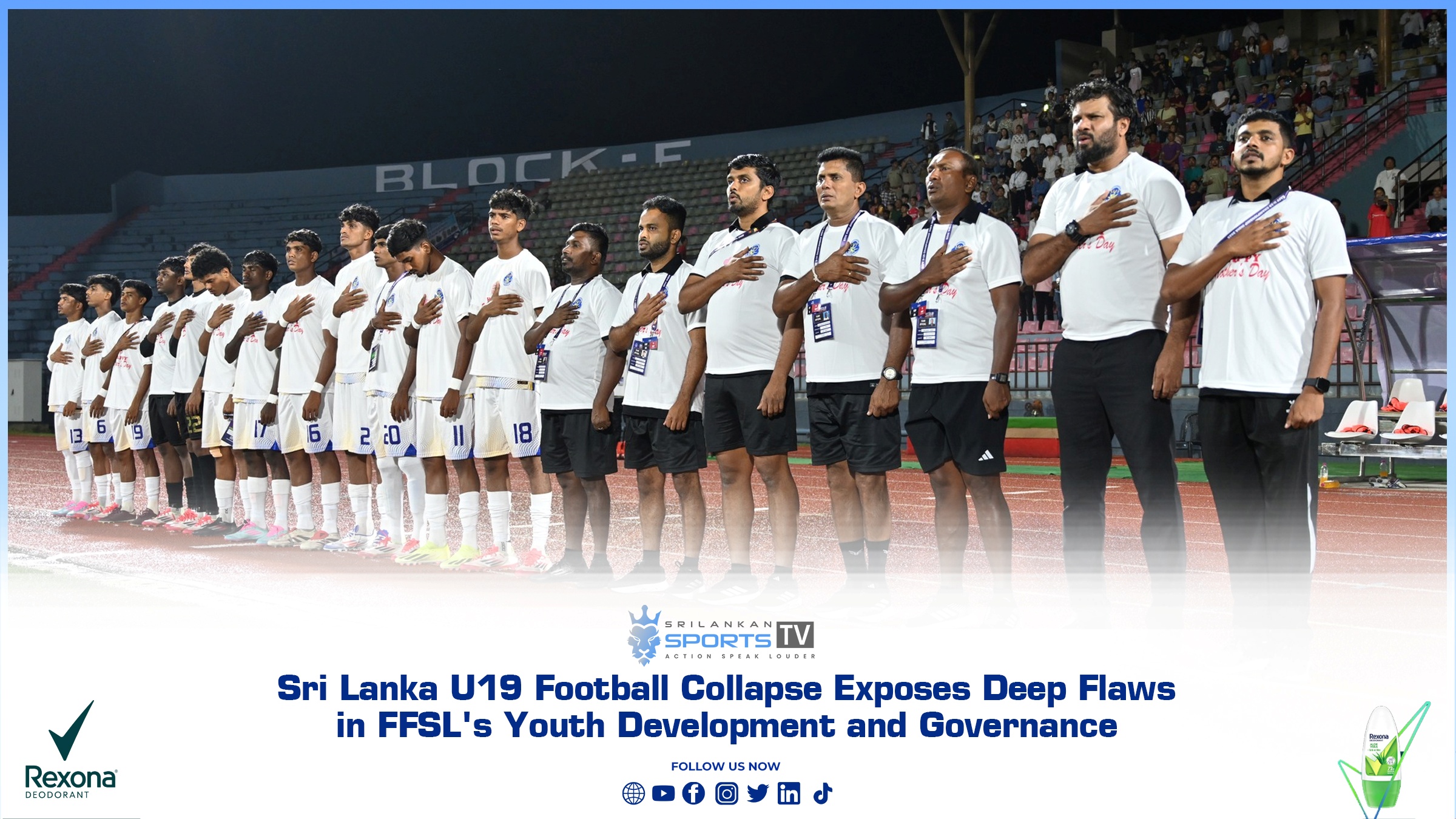

Sri Lanka’s humiliating 13-goal downfall in just two matches at the SAFF U19 Championship 2025 has laid bare the critical failures in preparation, technical development, and governance by the Football Federation of Sri Lanka (FFSL).
After suffering an 8-0 loss to India and a 5-0 thrashing at the hands of Nepal, Sri Lanka crashed out of the tournament without scoring a single goal — a result symptomatic of a poorly planned campaign lacking any strategic foresight.
Despite knowing the SAFF U19 tournament would kick off on May 9, FFSL conducted the final player trials only on March 27, 28, and 29 — giving just over a month for squad selection, tactical preparation, and conditioning. To make matters worse, the team departed for India on May 7, leaving no room for acclimatization or final preparations.
Rather than conducting a proper youth tournament to identify the best talent across the country, FFSL relied solely on trials — a flawed approach that fails to account for the natural ups and downs in player performance. One poor day at trials could cost a talented youngster his chance, while truly elite players may never even get scouted.
Adding further concern was the decision to include Sri Lankan-origin players directly into the starting XI without proper assessments or integration into the team structure. This move, seen by many as superficial, was akin to placing icing on a cake that was never baked.
Despite grand public claims, FFSL’s much-hyped “Y19 Tournament” in collaboration with Lyca Gnanam Foundation turned out to be nothing more than a media stunt. No such competition materialized on the ground, leaving local youth players without the competitive platform they were promised.

This is not only a technical failure but a complete collapse in administrative responsibility. The lack of grassroots planning, long-term youth development frameworks, and regional scouting shows FFSL’s hollow commitment to actual football development.
Even more alarming are the disciplinary concerns, with reports emerging that the U19 head coach physically assaulted five players at the team hotel — if it is ture, a severe breach of professional conduct that demands immediate investigation and accountability.
The blame cannot rest solely on the President of FFSL. The 2023 election saw three influential football administrative figures unite to secure victory. Yet, in the face of this collapse, only the President faces criticism, while the others remain conveniently silent.

It is clear: playing international matches alone won’t develop football. What Sri Lanka needs is a structured, grassroots-driven technical program — not public relations campaigns or shortcuts.
Unless FFSL reforms its approach to youth development, embraces merit-based talent identification, and ensures accountability at all levels, Sri Lankan football will continue to languish in mediocrity, both regionally and globally.
Football
Sri Lanka U19 Football Team Crashes Out of SAFF Championship with Embarrassing Defeats
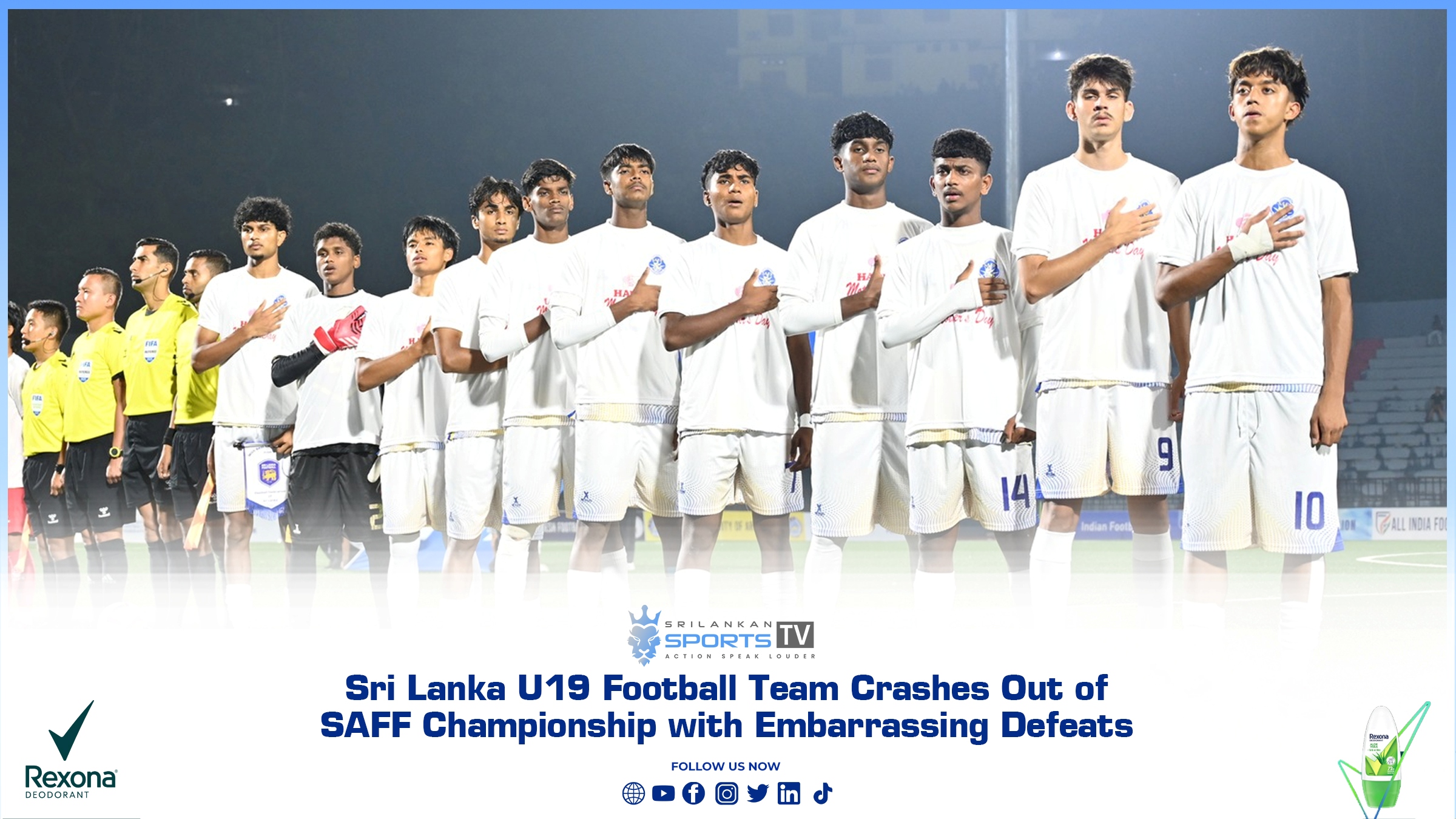

Sri Lanka’s U19 football team suffered a humiliating exit from the SAFF U19 Championship 2025 after being routed 5-0 by Nepal in their second group stage match, just days after a crushing 8-0 defeat against India. With 13 goals conceded in two matches and none scored, the team’s dismal campaign has raised serious concerns over the Football Federation of Sri Lanka’s (FFSL) preparation and technical planning.
Goals Link: https://www.facebook.com/share/v/1ZXQmc7qJL
The back-to-back heavy losses reflect more than just poor on-field performance — they expose a deeper structural failure in Sri Lanka’s football development system. The decision to hurriedly assemble the squad and include overseas-based Sri Lankan-origin players may have been well-intentioned, but it turned out to be a superficial fix — akin to placing icing on an unbaked cake.
Despite individual talent and moments of athleticism, the team lacked cohesion, tactical discipline, and fitness — a direct result of inadequate preparation and the absence of a proper long-term youth development strategy.
This tournament has made it abundantly clear that international match exposure alone cannot bridge the technical and developmental gaps in Sri Lankan football. Grassroots investment, school-level competitions, proper coaching structures, and continuous player development pathways are urgently needed if Sri Lanka is to be competitive at regional or international levels.
It is time the FFSL technical department, its President, and Executive Committee move beyond media optics and press conferences and instead focus on real football development. Structural reforms, professional planning, and technical consistency must replace ad-hoc preparations and cosmetic fixes.
Sri Lanka’s early exit should serve as a wake-up call: the future of Sri Lankan football depends not on imported talent but on nurturing homegrown players through sustained and systematic development.
-

 Live4 years ago
Live4 years agoLive Broadcast of Syria vs Sri Lanka | AFC U23 Asian Championship Qualification
-
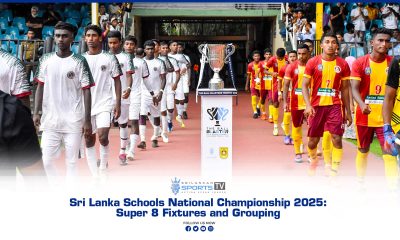
 Football3 months ago
Football3 months agoSri Lanka Schools National Championship 2025: Super 8 Fixtures and Grouping
-
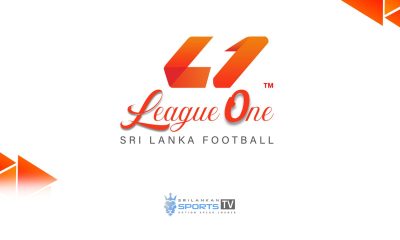
 Football4 months ago
Football4 months agoFFSL Rebrands Division-1 as ‘League-One’ with a Bold New Vision
-

 News4 months ago
News4 months ago2025 Schools Rugby Season Set to Thrill Fans with Knockout and League Action
-

 News4 years ago
News4 years agoWe are Back
-
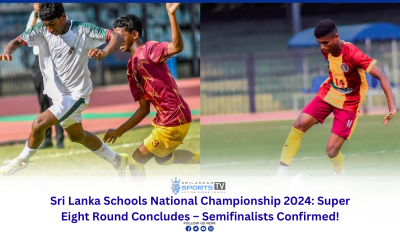
 Football3 months ago
Football3 months agoSri Lanka Schools National Championship 2024: Super Eight Round Concludes – Semifinalists Confirmed!
-

 Cricket3 months ago
Cricket3 months agoSri Lanka vs Australia 2nd Test: Spin to Dominate as Galle Pitch Set to Turn
-

 Football4 months ago
Football4 months agoErling Haaland Signs Record-Breaking 9.5-Year Contract Extension with Manchester City




